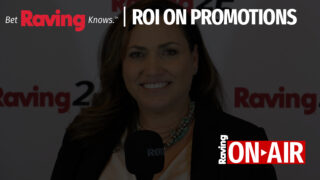
Clearing up misconceptions about your talent program
Throughout the years, I’ve seen the same questions and concerns from our tribal and commercial casino clients. I would like to take a minute here to list out ten of those issues or myths, and hopefully clear up some of the confusion.
1) I must book talent that caters to the Millennials.
Otherwise known as Generation Y, or the Internet generation (iGen), Millennials are people born between the years of 1980 and 1995. Millennials are often “echo boomers” (their parents were part of the baby boom), and they are often extremely tech-savvy. This is the talk at every gaming conference we attend. With regards to catering to them with your entertainment, I think a little bit is fine. Just remember that these people don’t have the same amount of disposable income, and they are more socially driven to hang out with their friends in and around your lounge or bar. Keep them on your radar, but don’t go overboard. Their time will come. If you decide to bring in a show that caters more to their demographic, don’t look for much of a gaming floor bump. And remember, this kind of a show could push some of your regular customers away.
2) The inside talent buyer versus the outside talent buyer – won’t I save money doing it myself?
Well, let’s put it this way, in most cases, inside buyers wear several hats with a lot of other responsibilities. They seldom attend entertainment industry conferences, because of department budget constraints. You’re lucky enough if you get to see them at G2E or NIGA. They don’t have a good overview of what is going on all around the country, and they end up being taken advantage of by artists, agents and managers. They will typically pay a lot more for an act and will not be aware of routing in a region that will save them money. They also are behind on current industry trends and new acts that are creating a buzz in the casino world. I am not saying an inside buyer can’t do a good job, it’s just that an outside buyer does this for a living and has the key advantage – RELATIONSHIPS and a much better view of what works and what doesn’t work around the country.
3) I want to save money and eliminate “live bands” in my lounge. I can bring in a DJ and operate more like the club scene that Las Vegas has in its properties.
In my experience, the secondary and tertiary markets are not like the Las Vegas Strip. I have watched properties cut out a very successful live music scene in their lounge and try to go with a DJ “to save money.” Before you jump headfirst into this plan, understand your regional culture. Live music has always done well. It’s typically about the quality of bands you are booking and the age of your core customer. A DJ can be very good for a more urban location, but when you get outside of those areas, just get the best local bands available. This takes some research, and the local booking agents in your area can be worth working with to build your program. For a local band to be successful, you need to look for their social media presence and go see the band play. All bands play the same music, so the question is do they have personality and presence on stage? Do they have a fan base that follows them around? These are important criteria. Remember, you get what you pay for.
4) A longer show is better – we want to get our money’s worth.
This is always the wrong way to go. You are in the gaming business with soft tickets and comps. You want your customer in the casino and on the gaming floor. Concert entertainment is about drawing people in, not holding them in a concert venue for hours at a time. Seventy-five minutes tends to be a good length of time for a show. Putting an opening act on the bill is really not the best way to go, because it extends the time in the showroom and adds additional costs. Keep it simple and choose your entertainment accordingly.
5) We want to pay for our concert off the ticket revenue at the door.
Well, of course this is the goal. However, just some simple math will explain why this is an issue. The Artists/Events that are going to actually sell tickets, are going to cost $15K – $30K, at the bare minimum. Then you have all of your production costs, advertising and marketing for the show, the hotel rooms, ground transportation, hospitality, etc., for the performer. Your costs will then start to be $30K – $60K, or more. Let’s take a 1,000 seat venue with 3 tiered seating as an example:
200 x $50 = $10,000.00
400 x $30 = $12,000.00
400 x $20 = $ 8,000.00
Gross revenue if you sell every ticket = $30,000.00
The artists that are really selling 1,000 seats and more, are typically going to cost you in the $40K and up range. You see the dilemma here. I recommend you evaluate the overall incremental revenue stream that concerts and events create at your property. Don’t expect to pay for the artist off the door revenue.







